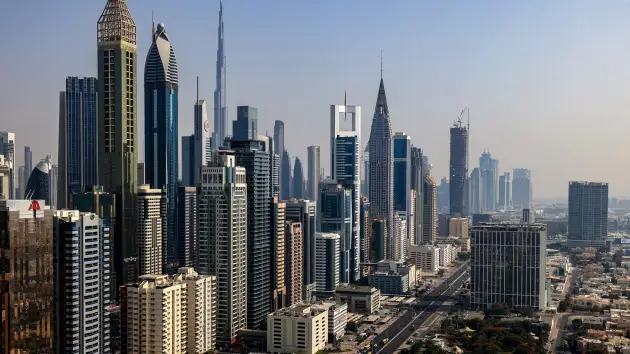Data from the real estate consulting company shows that prices in Dubai have increased by 225% from plunging to an all-time low in the third quarter of 2020.
For the ninth consecutive quarter, The Emirate held the top spot in the rankings.
According to a new research by Knight Frank, Dubai’s luxury home prices increased by almost 50% in the year leading up to June, keeping its top spot for the eighth consecutive quarter.
The property consultancy firm released figures on Wednesday showing that prices in Dubai have increased by 225% from plunging to an all-time low in the third quarter of 2020. For the ninth consecutive quarter, The Emirate held the top spot in the rankings.
Tokyo, which experienced an annual growth of 26.2%, and Manila, which witnessed a increment 19.9%.
Shanghai, China, saw an addition of 6.7%, and Singapore saw an increase of 4.2%. The survey stated that “the inflow of expatriates to Singapore, spurred by the flourishing financial and professional services sector, has influenced the rental market more than the sales market,” noting that the difference is partially attributable to taxation for purchases by foreign buyers.
Foreign buyers of residential property in Singapore must now pay an extra 60% in buyer’s stamp duty, double the prior 30%, effective of the end of April.
Due to a rise in unsold inventory from recently completed projects, prices in Hong Kong have fallen 1.5% over the past year. The Hong Kong government increased its mortgage loan-to-value ratio for residential properties priced at 15 million Hong Kong dollars ($1.9 million) or less to 70% in an effort to boost demand.
The ability of the shift to “significantly boost” growth is still unknown, according to Knight Frank’s analysts, even though the change is expected to be welcomed by purchasers.
Other cities that experienced declines were New York, which fell 3.9%, and San Francisco, which had an 11.1% decline. Frankfurt, Germany, came in last on the list after experiencing a 15.1% decline.
In all 46 markets included in the Knight Frank Prime Global Cities Index, average yearly price growth was 1.5%.
According to Knight Frank’s Global Head of Research Liam Bailey, “the switch to higher interest rates is still exerting pressure on the world’s housing markets.”
However, he pointed out that the index’s findings confirm that prices are backed by robust underlying demand, limited supply as a result of the interruption of new construction projects due to the pandemic, and the influx of workers back into cities. Changes in prices in many markets are likely to be smaller than was anticipated even three months ago, Bailey continued, as uncertainty regarding the path of inflation appears to have decreased in recent months.

